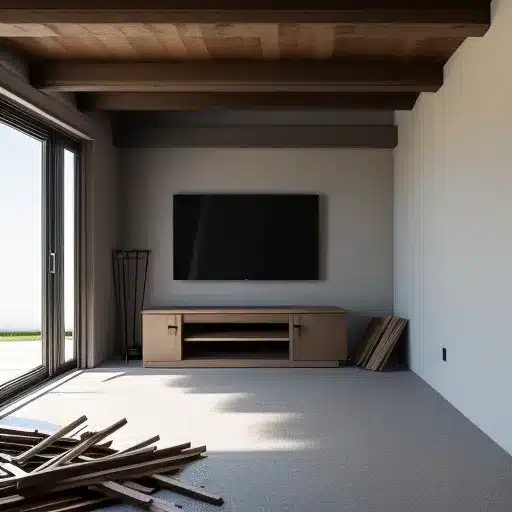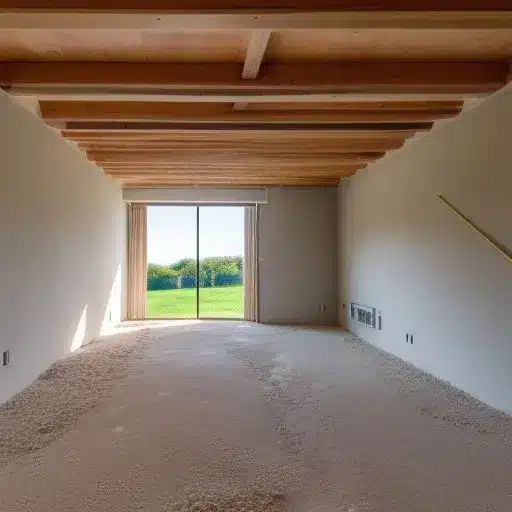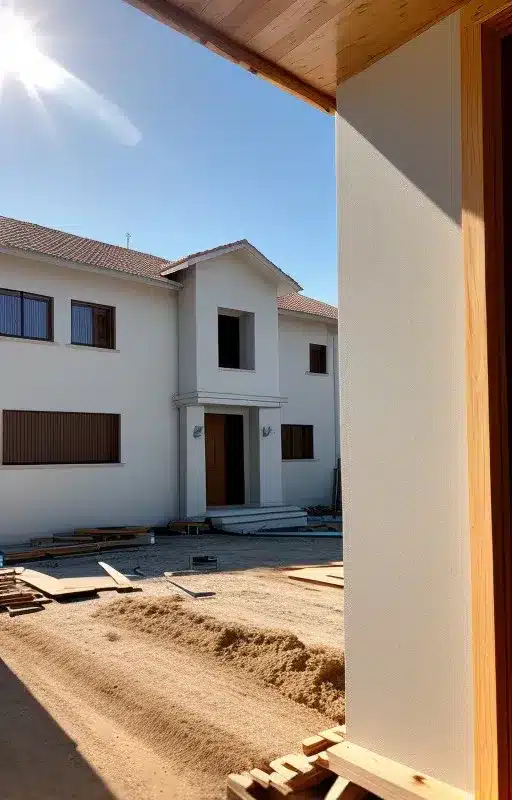6 Tips for managing acquisition, delay and problems in CCMI
Maître Zakine, a lawyer specialising in CCMI, has 6 tips for you.
Article produced by Maître Zakine, Doctor of Law, CCMI lawyer
Text taken from October 27, 2023
1. Check that all clauses to be included in the at contract are there.
Article L. 231-1 of the Construction and Housing Code requires the builder of a single-family home to conclude a contract with the client.
The sentence is simple, but it is important. Many clauses must be included and the purchaser of the house, being a consumer, must be protected.
Individual Home Construction Contracts (CCMI) are contracts used for the construction of individual homes. When you sign a CCMI, you are protected by a money-back guarantee that allows you to get your money back if the builder does not meet their obligations. In addition, you will also have to put down a security deposit that will be used to cover any damages caused during construction. In short, CCMIs offer additional protection for homeowners by guaranteeing that they will get their money back and covering damages caused during construction.


2. Are the manufacturer's guarantees present? Have you noted them all?
The promoter or CCMI builder must take out insurance - garantie de parfait achèvement, garantie biennale and garantie décennale. They must provide you with these and the names of the insurers. This is a crucial element. You should be aware of it at the time of purchase and keep it with you at all times.
The promise to sell is a legal document that commits both parties, the buyer and the seller, to enter into a contract of sale at a future date of completion. It is often used in the sale of properties under construction or renovation.
The promise of sale generally provides for conditions suspensive conditions that must be met before the sale is finalised. These conditions may include acceptance of the work, obtaining a bank loan or obtaining planning permission. build.
Once all the suspensive conditions have been fulfilled, both parties can sign the final sales contract. If one of the conditions is not fulfilled, either party can withdraw from the promise to sell without penalty.
In some cases, the parties may have recourse to a court-appointed expert to resolve disputes relating to the promise to sell. This may include verification of the suspensive conditions, the quality of the work carried out or compliance with the terms of the promise to sell. delivery times.
In summary, the promise to sell is a legal document that commits both parties, the buyer and seller, to enter into a contract of sale at a future completion date. It generally provides for suspensive conditions which must be met before the final conclusion of the sale, such as receipt of the work, obtaining a bank loan or obtaining a building permit. If all conditions are met, both parties can sign the final sales contract, otherwise, either party can withdraw from the sales promise without penalty. It is possible to resort to legal expertise to resolve disputes linked to the promise of sale. This may include verification of suspensive conditions, the quality of the work carried out or compliance with delivery times.
The biennial guarantee, also known as the guarantee of good working order, is one of the three guarantees available to a project owner. It is invoked in the event of difficulties arising following the delivery of the property, in the same way as the guarantee of perfect completion and the ten-year guarantee. It is also known as damage to work insurance.)
In accordance with Article 1792-3 of the Civil Code, the biennial guarantee covers the owner against all damage to the equipment of the dwelling for two years after the house has been delivered.
3. Check whether the specifications are met by the manufacturer.
When the contract was signed, a specification was drawn up and you accepted it. At the time of delivery (or delay), it is this document that will have contractual value. You will therefore have to take it back.
4. Check that the building permit was submitted within the contractual period and that the work complies with the building permit
Check that the documents given at the time of delivery of the CCMI are correct and that they are not false.
It can happen that the CCMI documents are wrong at the time of delivery. Do not hesitate to ask for help from a bailiffA surveyor can be called in to check the measurements and any defects. The deadlines are short, so do not hesitate to prepare this delivery beforehand, by making pre-delivery visits.
5. Documents returned on delivery of the construction have they have been verified and are–Are they real?
When your CCMI is delivered, the promoter provides you with documents. Check if they are correct and fair by getting help from experts (bailiff, building expert, etc.) to express reservations. If the CCMI documents are false and provided by the promoter, it will then be necessary to contact him in a procedure. In this case, we can only advise you to contact a specialized CCMI lawyer.

6. If you have a problem, seek advice quickly from a lawyer specializing in CCMI
In the event of a dispute, do not hesitate to contact a lawyer as quickly as possible. He will be able to help you and seek legal damages due to the fault of the manufacturer which caused the damage.
Difficulties (e.g. construction defects) may arise during the acceptance of the built property. The acceptance of a CCMI house remains the crucial moment of the construction site since it is during the acceptance phase that the purchaser will express reservations based on an acceptance report. These reservations will have to be lifted by the builder under the legal guarantees of the construction.
This is why it is essential for the purchaser to deposit the sum of 5% corresponding to the balance of the overall cost of the project.
Another type of dispute that can arise is when a building site is abandoned. In this case, the buyer will be protected against the risk of non-performance of the work by the delivery guarantee. Your A lawyer will advise you and will ask you to contact your guarantor to implement the delivery guarantee.
Similarly, the CCMI lawyer can request the cancellation of the CCMI sale (resolution of the CCMI) on the grounds of fault on the part of the builder, particularly in the event of non-compliance with these mandatory rules requiring that all the parts and elements listed in the Construction Code are not present.
Therefore, the nullity of the contract for the construction of individual houses can be requested in court by the client through his lawyer, before the judicial court of the place where the building is located.
Consequences of invalidity :
When the CCMI is cancelled, it is retroactively annulled from the day it was signed. This is known as cancellation of the contract. The client may then request the return of the funds paid and compensation for damages.
Finally, it should be noted that the contract for the construction of an individual house (CCMI) is distinct from the contract for services.
The CCMII is used for the construction of a single-family house or a building comprising no more than two dwellings intended for the same owner for residential or mixed use on land owned by the purchaser. The CCMI can be concluded with or without the provision of plans.
In contrast, the contract for work is a works contract which can be concluded if none of the contractors involved is responsible for the provision of plans and if no contractor is responsible for the entire structural work. Other companies will be involved in addition to the main contractor.
Cabinet ZAKINE, lawyer specialising in CCMI and VEFAIn the event of delays, defects or deficiencies in the construction of a building, the company assists, advises and represents the purchasers in court when a resolution of the contract or damages are requested, either amicably or through the courts.
Zakine Law Firm may request the cancellation of the CCMI to the promoter's fault.
Packages are put in place according to the support required.
Make an appointment online with the Cabinet.
Master Zakine works throughout France ( Lille, Bordeaux, Paris,..) with specific tools (video, electronic signatures, online payment) to help you manage your activity as best as possible and limit the impacts on your daily activity.
Zakine Law Firm will be there to examine the possibilities action plan for the Construction Contract of Individual Houses. The firm regularly deals with a large number of cases, both grouped and ungrouped.
A amicable procedure is always easier with a lawyer. The Zakine law firm can help you.
It can intervene throughout France, its processes are dematerialized (electronic signature, video,...).
Maître Zakine frequently works remotely, with clients all over France.


